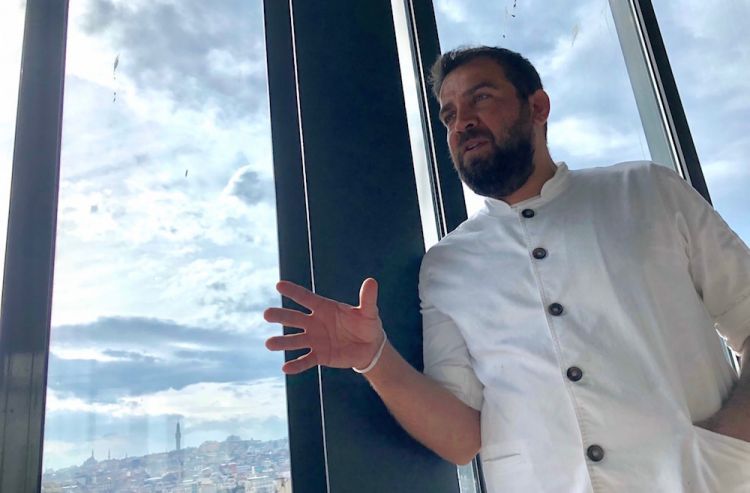On Saturday 9th of March, the opening day of the Identità Milano 2024 congress, three of the most authoritative representatives of the Turkish gastronomic nouvelle vague will take the stage together. We’ll have Mehmet Gürs of Mikla in Istanbul, the Turkish equivalent of what Massimo Bottura is for Italy in terms of militancy and depth; his partner Cemre Torun, an authoritative food writer who works for several prominent newspapers; and Maksut Askar, chef and owner of Neolokal in the metropolis on the Bosphorus, a restaurant and a project that we have long admired - we wrote about it shortly before the enclosure imposed by Covid.
What links the 3 speakers? Their common origins and the desire to support the border region between Turkey and Syria which, on the night between the 5th and the 6th of February 2023, was overwhelmed by two violent tremors, with epicentre in Gaziantep. An event forgotten about, overwhelmed by wars and all the other bad news that occupy online and printed news. A year later, the official figures speak of 59,000 deaths (but some suspect it could be three times more), over 100,000 collapsed buildings, 5 million homeless people. A huge tragedy, which has more or less directly affected every single Turkish citizen.
Gürs and Torun are disobedient ('disobedience as a premise for innovation' is the leitmotif of the Identità Milano congress) because they wanted to break the silence around the tragic event. They did so in record time, organising an event in London last June called The Cradle of Food. This region is undoubtedly a cradle of food for the whole of Turkey, contributing 30% of the country's food. And it partly coincides with Mesopotamia, the 'fertile crescent' we studied in high school. 'It is the cradle of civilisation, a place traversed over the millennia by people who have contributed an immense artistic, scientific and religious heritage,' the two explained.

Maksut Askar, Neolokal, Istanbul, one Michelin star
The charity event on the banks of the Thames attracted a thousand people from Armenia, Jordan, Lebanon, Syria, the United States, Sweden, Venezuela... Cooks and non-cooks invited to roll
sarma and
dolma, mix
pilaf rice with bergamot and almonds, assemble
tabbouleh and
freekeh, prepare lentil soups,
piyaz or
muhammara creams in the Aleppo tradition. The next day, the dishes would make for an unforgettable menu: hundreds of people called to share smiles and adoration for the
cradle’s food.
This was followed by the testimonies of engineers, gastronomes, archaeologists, writers, activists recounting the wonders of that tormented land. Among them, we were struck by the talk given by Maksut Askar. With Arab blood in his veins, originally from the province of Hatay, he summed up the wonders of his native Antioch: 'A transit point for empires, traders, crusades, earthquakes and reconstructions. Athenians, Macedonians, Jews, Greeks, Syrian natives, Cilicians, Alaouites have inhabited the place. Protestants, Greeks, Maronites, Orthodox, Muslims, Catholics and Jews'. Today Antioch is razed to the ground. Imagine if it had happened in Catania, a city of the same size and population as the Turkish city. ‘No one, however, wants to leave the town where they were born. So, how can we revive and restore a future for our people? By striving to pass the best of its past on to the new generations. By reviving its memories and greatness. And I can only do this through food and cooking.'
The follow-up, on Saturday 9th of March 2024 at Auditorium MiCo, 4.45 p.m. (
register for the conference).
Translated into English by Slawka G. Scarso